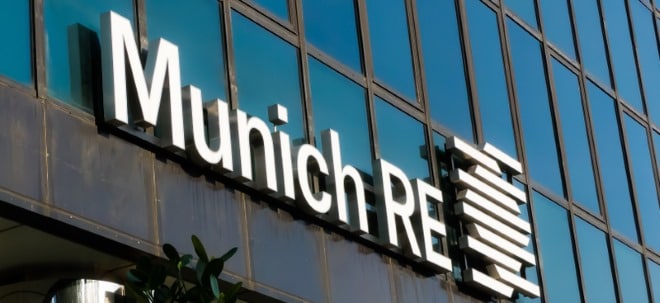Captive Primate Safety Act Reintroduced, Congressman Visits Born Free USA Primate Sanctuary
SAN ANTONIO, May 13, 2025 /PRNewswire/ -- On May 5, 2025, the Captive Primate Safety Act (H.R. 3199/S. 1594) — legislation that would ban the private ownership of primates in the United States — was reintroduced in Congress. The introduction of this important bill was further heralded by Rep. Mike Quigley (D-IL) — the House champion of the bill — touring the Born Free USA Primate Sanctuary on Friday, May 9. His timely visit allowed the congressman to meet some of the victims of the primate pet trade and learn more about their stories.
"Monkeys and apes belong in the wild — not in living rooms," said Congressman Mike Quigley (IL-05), co-chair of the Congressional Animal Protection Caucus. "This bill will ban private possession of these animals, ensuring that we are safe and primates are able to live freely. As the lead sponsor of the 2022 Big Cat Protection Law, I'm proud to sponsor the Captive Primate Safety Act to advance the same protections for primates."
Monkeys housed at the sanctuary include Wally, a Rhesus macaque who, despite his small size, caused his former owner serious injury by biting off part of her ear, and Gizmo, an illegally kept vervet monkey, who was surrendered after attacking his owner's son-in-law. These are just two of the sanctuary residents who were surrendered or confiscated after attacking their owners while kept as pets.
In addition to Rep. Quigley, the Captive Primate Safety Act was introduced by Reps. Brian Fitzpatrick (R-PA), Julia Brownley (D-CA), and Nancy Mace (R-SC). It was introduced in the Senate by Sen. Richard Blumenthal.
"Primates are intelligent and social creatures. But when primates are kept as pets — in captivity and restrained — they can become highly unpredictable and dangerous," said Sen. Blumenthal (CT). "Wild animals belong in the wild, and this legislation ends the inhumane exploitation of these animals as pets — protecting both people and primates."
While larger species of primate, such as chimpanzees, are widely recognized as posing significant danger to people, smaller animals, such as the macaques and vervets cared for by Born Free USA, can also cause life-changing injuries. This, says Born Free CEO, Angela Grimes, is one reason why a blanket ban on their keeping as "pets" is necessary.
"Too many times, our team has received frantic phone calls from primate pet owners desperate for us to help them," Grimes said. "They purchase a monkey when they are just a few weeks old and have no idea that this small, vulnerable animal will soon become a dangerous risk to them and their families. When the monkey reaches adolescence, the owners start to see instances of aggression — a natural behavior in monkeys — and these instances often escalate to the point of someone being seriously harmed. It is then that a sanctuary is called in to take on the monkey, as the owner realizes that they have made a mistake."
"Your family shouldn't have to worry about wild monkeys next door. When reckless owners treat primates like pets, it's law enforcement, taxpayers, and innocent families who pay the price," said Congresswoman Mace (SC-01). "The Captive Primate Safety Act is simple: protect the public, protect law enforcement, and stop this dangerous trend before someone else gets hurt."
In addition to calls from primate owners, the sanctuary receives requests for help from law enforcement and animal control departments, neither of which are trained to deal with wild animals such as monkeys.
Willis, a young vervet monkey, was found running loose in Chicago and was captured by local animal control. He escaped his holding cage twice on the first day, and the officers called Born Free USA asking for help. Willis was soon on a plane to south Texas, where he now lives with others of his own kind. Other monkeys at the sanctuary who were confiscated include Rhesus macaques, Pablito and Lyla, and Japanese macaque, Julian.
Born Free USA's Animal Welfare and Advocacy Director, Liz Tyson, said: "Law enforcement is not trained to deal with these animals. This puts their staff in danger when they find illegally kept primates, or it means that confiscation is simply not possible for lack of somewhere for the monkeys to go. Given the dangers posed by primates to humans – including injury and disease transmission – forcing law enforcement agencies to take responsibility for the fallout of the primate pet trade is unacceptable."
"Private ownership of primates is a dangerous and outdated practice that puts both animals and communities at risk," said Congressman Fitzpatrick (PA-01). "As a Co-Chair of the Animal Protection Caucus, I'm taking action to put an end to this cruelty and close the legal gaps that allow it to continue. The Captive Primate Safety Act will ban the unlicensed trade and private possession of primates—reducing the threat of disease, preventing future tragedies, and ensuring these intelligent animals are no longer subjected to neglect and abuse. It's time to get this done."
The Born Free USA Primate Sanctuary cares for more than 200 monkeys rescued from abuse and neglect in the pet trade, zoo, and laboratory industries. As one of the largest accredited sanctuaries of its kind in the country, Born Free prides itself on providing high quality individual care to all its residents.
About Born Free USA
Born Free USA works to ensure that all wild animals, whether living in captivity or in the wild, are treated with compassion and respect and are able to live their lives according to their needs. We oppose the exploitation of wild animals in captivity and campaign to keep them where they belong—in the wild. Born Free USA's Primate Sanctuary is the largest in the United States and provides a permanent home to primates rehomed from laboratories or rescued from zoos and private ownership.
We're social: www.bornfreeusa.org, www.twitter.com/bornfreeusa, www.facebook.com/bornfreeusa, www.instagram.com/bornfreeusaorg.
MEDIA CONTACT:
Heather Ripley
Orange Orchard
(865) 977-1973
hripley@orangeorchardpr.com
![]() View original content to download multimedia:https://www.prnewswire.com/news-releases/captive-primate-safety-act-reintroduced-congressman-visits-born-free-usa-primate-sanctuary-302453472.html
View original content to download multimedia:https://www.prnewswire.com/news-releases/captive-primate-safety-act-reintroduced-congressman-visits-born-free-usa-primate-sanctuary-302453472.html
SOURCE Born Free USA


